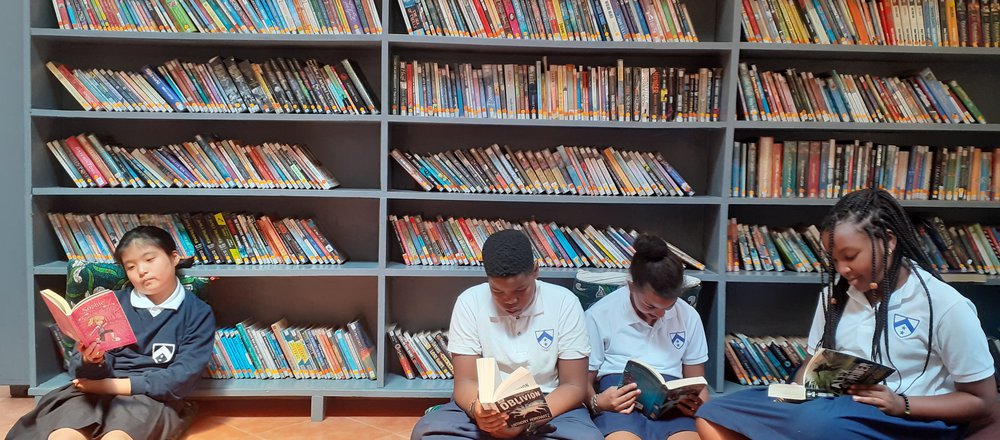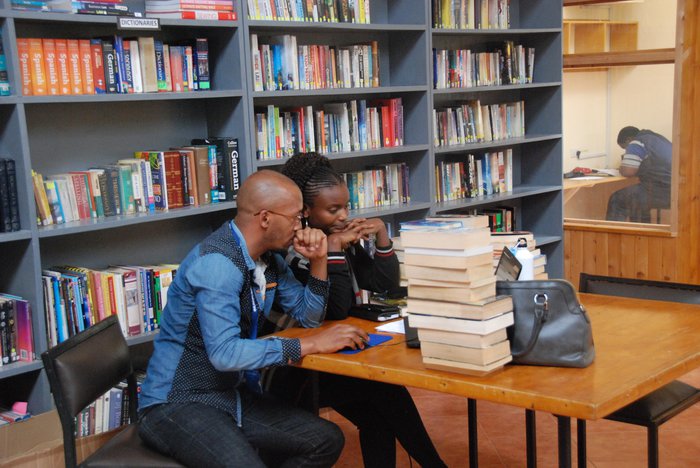The Importance of Reading

6th September 2019
So please, oh please, we beg, we pray
Go throw your TV set away
And in its place you can install
A lovely bookshelf on the wall…”
- Charlie and the Chocolate Factory by Roadl Dahl
Over the years, parents ask, “What can I do to help my child improve in school?” The answer has always been, “Get them to read more. Less screen time, more book time.”
It is a known fact that watching a film or playing a computer game is like eating junk food. The images and story are already formed – the imagination sleeps – and craves more of the same – like we do sweets. However, when reading a book, the imagination is alive. The characters form in our minds along with the settings, the colours and tones of conversations, and we actually feel alongside our characters. The benefits of this intellectual endeavor are countless. Not only are our imaginations alive and working, but we are also improving our spoken and written language. We all spend far too much time on our phones – texting, whatsApping, sending messages on Facebook and on other social media, like Snap Chat. All of this erodes our writing – which isn’t always ‘gr8’….!? Spelling is degraded and vocabulary erodes into a plain about as varied as a Martian landscape.
Reading also teaches us empathy and develops analytical skills. We walk in other worlds, creating empathy, searching for truth. As Malorie Blackman, a well know British children’s author says, “Reading is an exercise in empathy, an exercise in walking in someone else’s shoes for a while.”
Students are encouraged to use good, old fashioned dictionaries, rather than a quick google search, because it is a bit like fishing. Along the way, one stumbles across other words caught in our search net. This again helps to increase our vocabulary.

With this in mind, BISA has extended the library and we encourage our students to read. Students in the sixth form retreat to the library to study. KS3 is allocated reading time. Tutors encourage their students to read and we take an interest in what books they are reading. Many spend long hours on a bus, a perfect time to finish a chapter instead of lining up different colour sweeties in a game of Candy Crush!
It is important to ask your child what he or she is reading and take an interest. “Oh! What’s your book about?” At the end of the day, it doesn’t matter the genre – whether it is the Guinness Book of Records, a good comic like Asterix and Obelix or a riveting Jane Austen – as long as at least 30 minutes a day is spent reading. It becomes very obvious in a classroom which children read. They are far ahead of others who don’t, academically and empathically.
As teachers and parents we must encourage reading – the doorway to imagination and creative, intelligent thinking. For the little ones, reading a bed time story is one of the best ways to end the day – leaving them with stories for dreams and a feeling of security and safety. For the older ones (including us teachers and parents), there is nothing quite as lovely as jumping into bed with a good book. If it means having to switch off the internet (to stop those midnight sessions of Fortnite (note spelling!?)) then do it. The benefits of reading are countless and your children will thank you for it. It is, quite simply, a gift.
Some links:
A brilliant talk by Rita Carter on the importance of reading:
https://www.youtube.com/watch?v=muuWRKYi09s
A lovely talk on how books changed a life:



